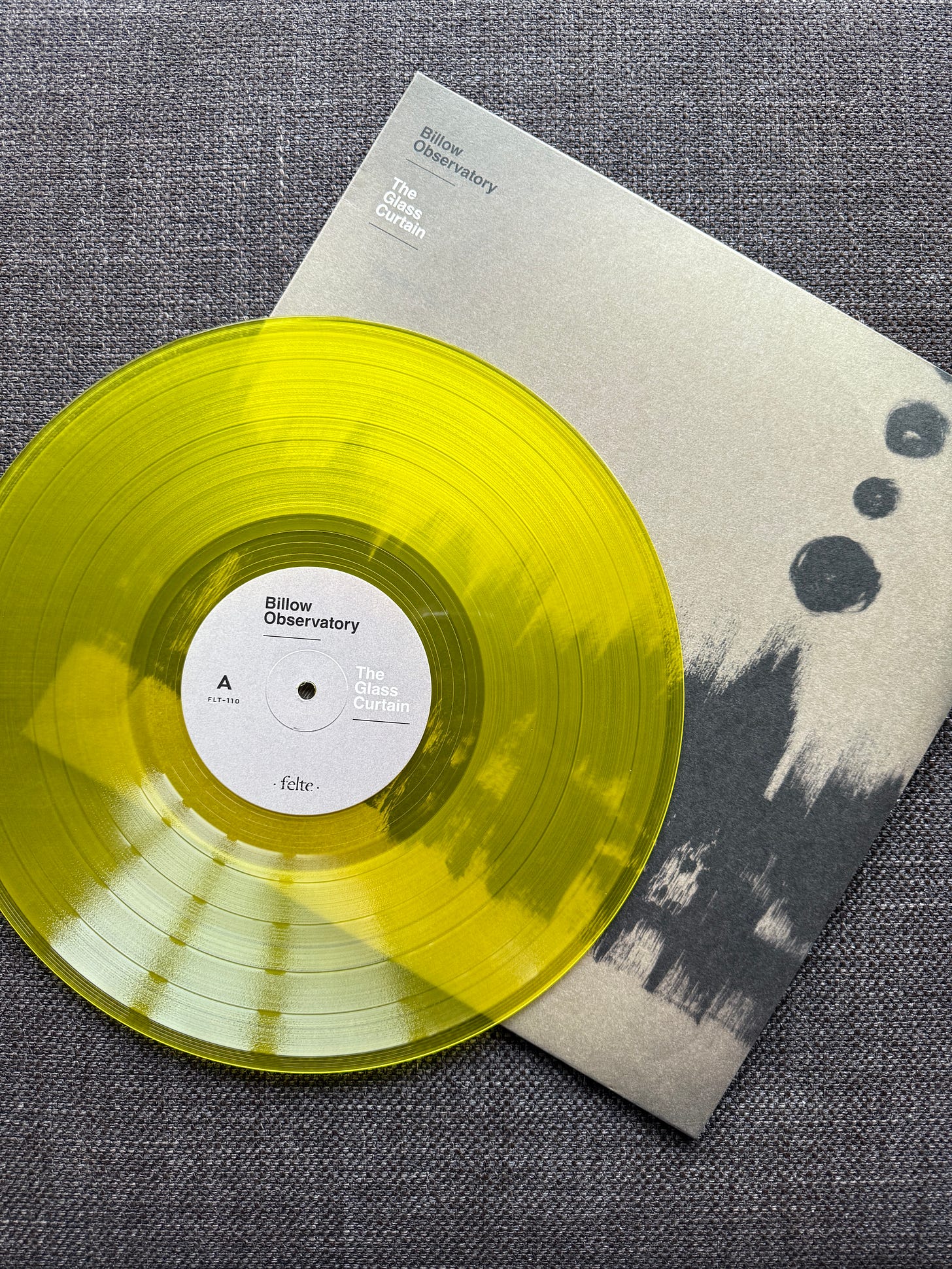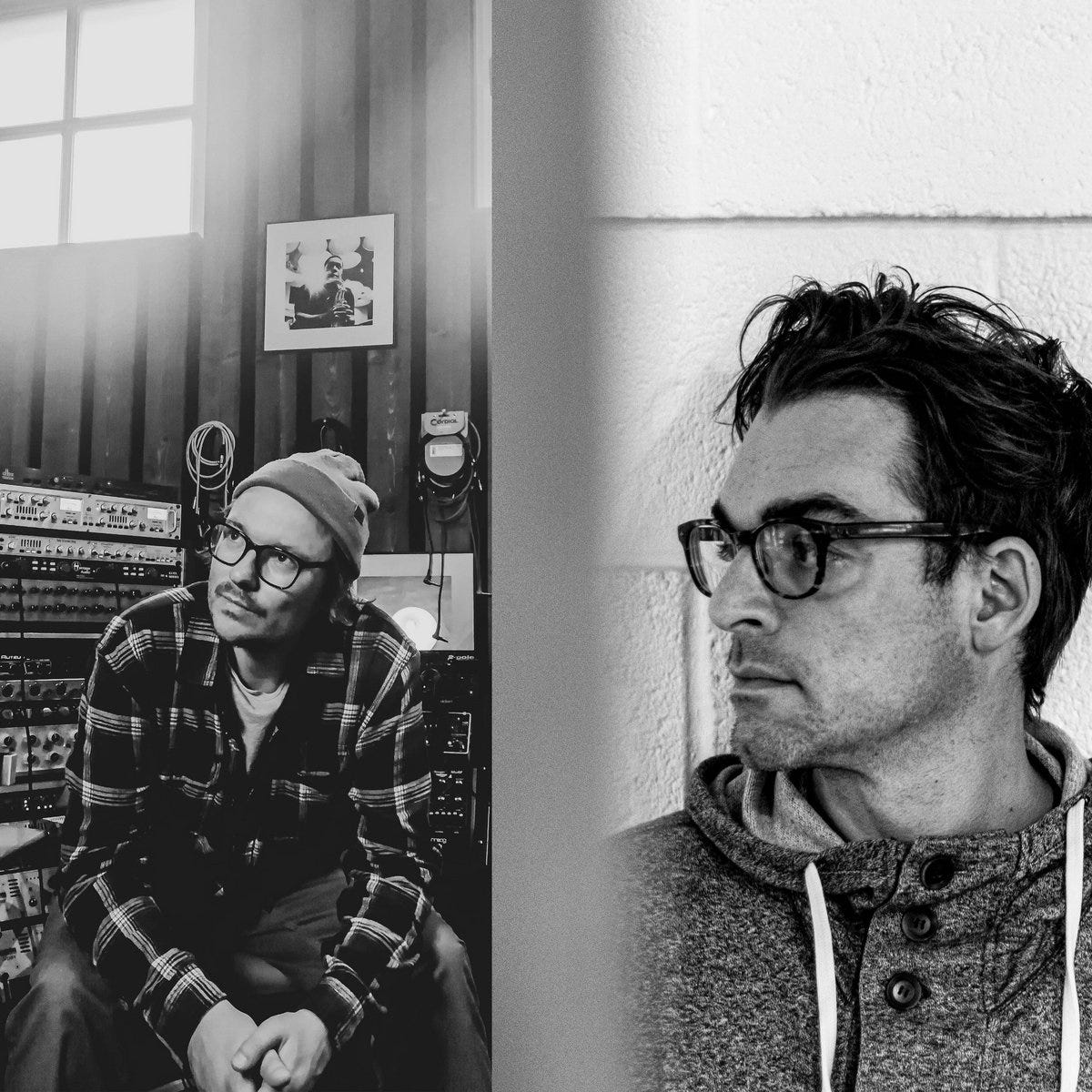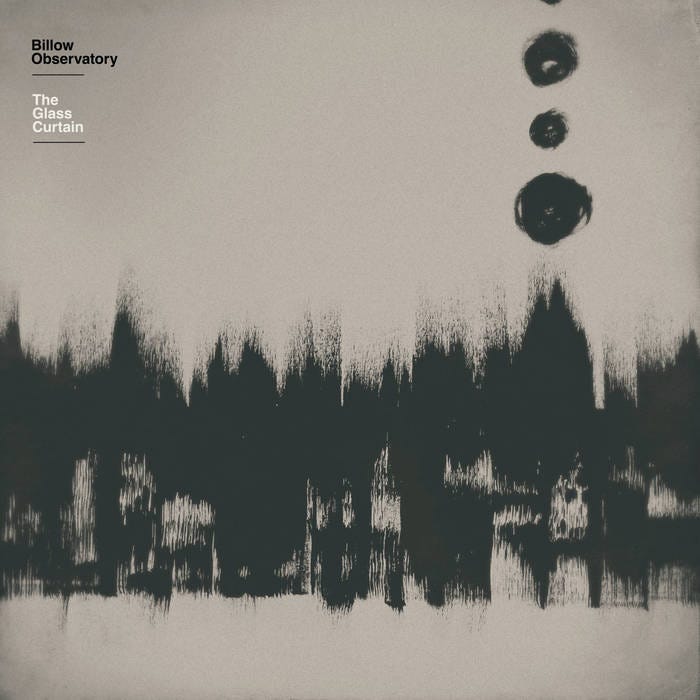Q+A with Billow Observatory
Jason Kolb and Jonas Munk talk about their latest Billow Observatory album The Glass Curtain.
Billow Observatory, composed of Jason Kolb and Jonas Munk, reflect on their collaborative process and album The Glass Curtain in this Q+A. The two also explain the album’s title and artwork, and contemplate the current state of independent music media and critique.
What do each of you bring to the Billow Observatory project that the other does not? In other words, which of your superpowers combine to form what makes your work special and unique?
Jason: I think we both bring a lot to the table and complement each other well, but Jonas has a lot of superpowers I wish I had. He is really the master of tying everything together into a finished product. He is excellent at mixing, mastering, and knowing how to sequence tracks into a cohesive order. It's pretty incredible.
Jonas: Generally we don't have specific roles in the project, but we have different approaches to how we do it. I always find it really inspiring to hear something Jason has been working on – chords that I couldn't have thought of, sounds that I have no idea how were created. The great thing about collaboration is that it really opens up your artistic windows and makes you see things from a different perspective. For me it's very easy to get stuck in my own habits.
You've described your album The Glass Curtain as refusing order and time by noting that "the concept of time is thrown out the window on each track". How do you know how much time to spend developing a song?
Jason: I think we’ve gotten to a point in our working relationship where we just intuitively know when something sounds finished. I used to struggle with trying to add too much to tracks and overthinking things, but for me it’s gotten easier over time to just accept things for what they are. There are tracks on this album that have rougher edges or random moments that, in the past, we maybe would’ve tried to “fix” or massage. We consciously decided to embrace those elements here, instead of endlessly tweaking.
Jonas: One tendency I've developed over the years is that I'd rather have too little stuff going on / in a track than too much. Some of the tracks for The Glass Curtain were actually left in a kind of unfinished state, where we were planning to do more work on them, but as we continuously listened to them we realized we liked them as they were. Leaving space in the music can be one of the hardest things to do.
The album's title is peculiar, suggesting opposing senses – separated but viewable, flat and smooth vs soft and draped, cool and transparent vs warm and enrobed. Why the title The Glass Curtain?
Jason: We like titles with multiple interpretations and opposing senses like you mentioned. This one can mean a few things, but I think of the modern partition of reality. People are choosing to ignore warnings, common sense, and crisis and live within a different world presented to them by the devices in front of them.
Jonas: Jason suggested the title without saying anything about it, and I immediately thought of The Veil of Maya in Buddhism – the idea that the way we perceive the world is illusory - that what we're experiencing is not the truth, but a deceptive representation of it. Later when I asked Jason what he meant with the title, and he explained it had to do with the way our modern media and digital devices shape our perception and understanding of things, I realized our two interpretations of the title were very much connected!
What is the story behind the artwork for The Glass Curtain?
Jason: My wife was working on some paintings and this one really caught me. She wasn’t happy with it and was about to paint over it before I stopped her. Something about it just seemed to go really well with the music.
It’s really nice, I like it. I agree that it fits well with the music.
Are there any stereotypes of ambient music that you try to avoid or embrace?
Jason: I can’t stand a lot of what’s called ambient music. In particular, music that is just too pretty and smooth. Some of it is just really bland, where it’s maybe just a synth pad with no other textures or depth.
Jonas: I never really cared about music that's very functionalist – music that's created with purpose to make you relax or meditate or something else. We always aim to make music that's ambiguous and kinda vague. Music that can feel totally different depending on the mood and circumstance of the listener.

How was it to work with Felte on this release?
Jason: Felte has been great to work with at every step. Jeff from Felte has always been very supportive and works really hard to do everything he can to get your music out in the world without compromise.
I first learned about Billow Observatory via the Sonixcursions podcast. I also remember Auburn Lull from late 90s college radio days. You've both been making music for longer than your Billow Observatory collaboration and have a sense of how DIY and indie music scenes worked in the 90s. What's something you're glad has changed about music distribution since that time and what's something that's changed for the worse?
Jason: It's better and worse at the same time these days. It's great that anyone can get music out into the world now without really having to deal with gatekeepers, but there's SO much out there and attention spans are way shorter than they used to be. It's so easy to get lost in it. The thing I dislike most is that artists have to constantly pimp their wares on social media to get any attention whatsoever, like "Look at us, look at us!". I'm not comfortable in the salesperson role. In the old days, you would get some radio play and ads in magazines if you were really lucky, which would keep the wind in your sails longer. Not everybody was lucky though, so it could be really hard to get any attention.
Are college and community radio stations still important for independent musicians?
Jason: They're still important, but to a lesser extent than 20+ years ago. It seems like curated streaming playlists have become more important than radio shows for most independent artists, but you can't deny the importance of stations with great programming like KEXP.
Jonas: College radio isn't a thing here in Denmark where I live. We have the public, state-owned radio stations and then we have the super commercial private ones that only play pop music. Whenever I've been in the US I've always enjoyed tuning into local college stations and been amazed at the quality of the shows. To be honest I'm very much missing any media that deals with independent music. We don't do a lot of promotion for our albums these days, cause there's hardly anyone left to send them to! All the blogs and zines that used to be important are pretty much gone, or have changed drastically. Maybe I'm being overly pessimistic but it seems to me music criticism isn't important anymore – it doesn't have the same cultural impact anymore. And generally I feel music is less important to people than it used to be. Music has been so devalued by the digitalisation and the internet and has become something that is just mindlessly consumed through endless algorithmic playlists on streaming services. It seems like it's not the big cultural force it used to be.
Any other comments or notes for readers and listeners?
Thank you for listening and sticking with us!
Follow Billow Observatory on Instagram and Bandcamp.
Follow Jonas Munk on Bandcamp and read about his collaboration with Ulrich Schnauss.


